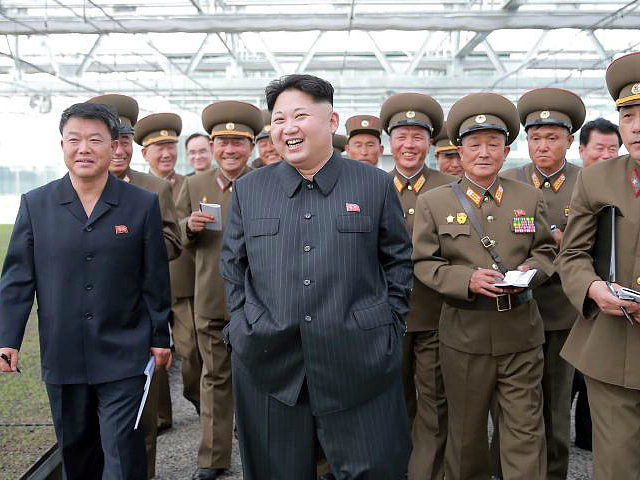A panel of United Nations experts convened to examine North Korea’s evasion of sanctions has established a link between North Korea and Syria’s chemical weapons program.
Specifically, the investigators found North Korea is shipping materials useful in chemical weapons production to the regime in Damascus, and North Korean missile technicians have been spotted at chemical weapons laboratories and missile production facilities in Syria.
The New York Times notes the U.N. report has not been formally released to the public and might never be, even though a former member of the panel of experts described the report as an “important breakthrough.”
This is bound to generate accusations that the U.N. lacks the courage to follow the convictions of its own experts or is too paralyzed by political interference from the likes of Syria’s patrons in Russia to take decisive action. Russia used its Security Council veto last year to kill an investigation of chemical weapons use in Syria by both government forces and the Islamic State.
The panel of experts has been investigating North Korean sanctions violations since 2010, which is not long before Syria’s use of chemical weapons became a global concern. Syria signed international agreements that were supposed to eliminate its chemical stockpile under Russian guidance in 2013 but has been accused of using weapons of mass destruction several times since then, most recently in the savage campaign against rebel positions in Eastern Ghouta.
Those who have seen the U.N. report describe it as inconclusive about whether Syria is still producing fresh chemical weapons with North Korea’s help, but say the evidence of past collaboration is convincing, including contracts and shipping documents for chemical weapons laboratory materials.
The New York Times additionally cites an upcoming book by Angelo State University professor and former Defense Intelligence Agency analyst Bruce Bechtol that argues North Korea has been supporting Syria’s chemical weapons program since the 1990s. According to Bechtol’s book, a 2007 accident involving a warhead filled with VX nerve gas killed advisers from North Korea and Iran along with Syrian technicians.
South Korea’s Yonhap News suggests the U.N. report will be kept on ice, at least for the near future, while efforts to bring North Korea back to the negotiating table play out. Alternatively, the report could be used as a “catalyst for talks by putting more pressure on Pyongyang.”
New York magazine wonders if the “horrific, yet unsurprising” report might remain unreleased because it makes the U.N. look ineffective:
The report’s findings paint a damning picture of the international community’s ability to police the global black market in illegal weapons: Both North Korea and Syria are under extremely heavy sanctions from the U.N., U.S., EU, and other countries and supranational organizations, yet they have been able to do regular business with each other, helping Syrian president Bashar al-Assad carry out atrocities while also financing North Korean leader Kim Jong Un’s nuclear weapons and ballistic-missile programs.
“North Korea has a sordid history of supplying rogue states like Syria with weapons of mass destruction technology for cash. Given its large and growing arsenal of nuclear, chemical and biological weapons and missile delivery systems, this is extremely dangerous,” former Pentagon non-proliferation official Andrew C. Weber told the Washington Post.
A Western diplomat familiar with the report told the Post, “We’ve known about this activity for a long time, but the report shows that it’s bigger than we knew.”
Syrian government officials told U.N. investigators there are “no DPRK technical companies in Syria,” and all North Koreans currently present in the country are athletes and sports coaches.

COMMENTS
Please let us know if you're having issues with commenting.